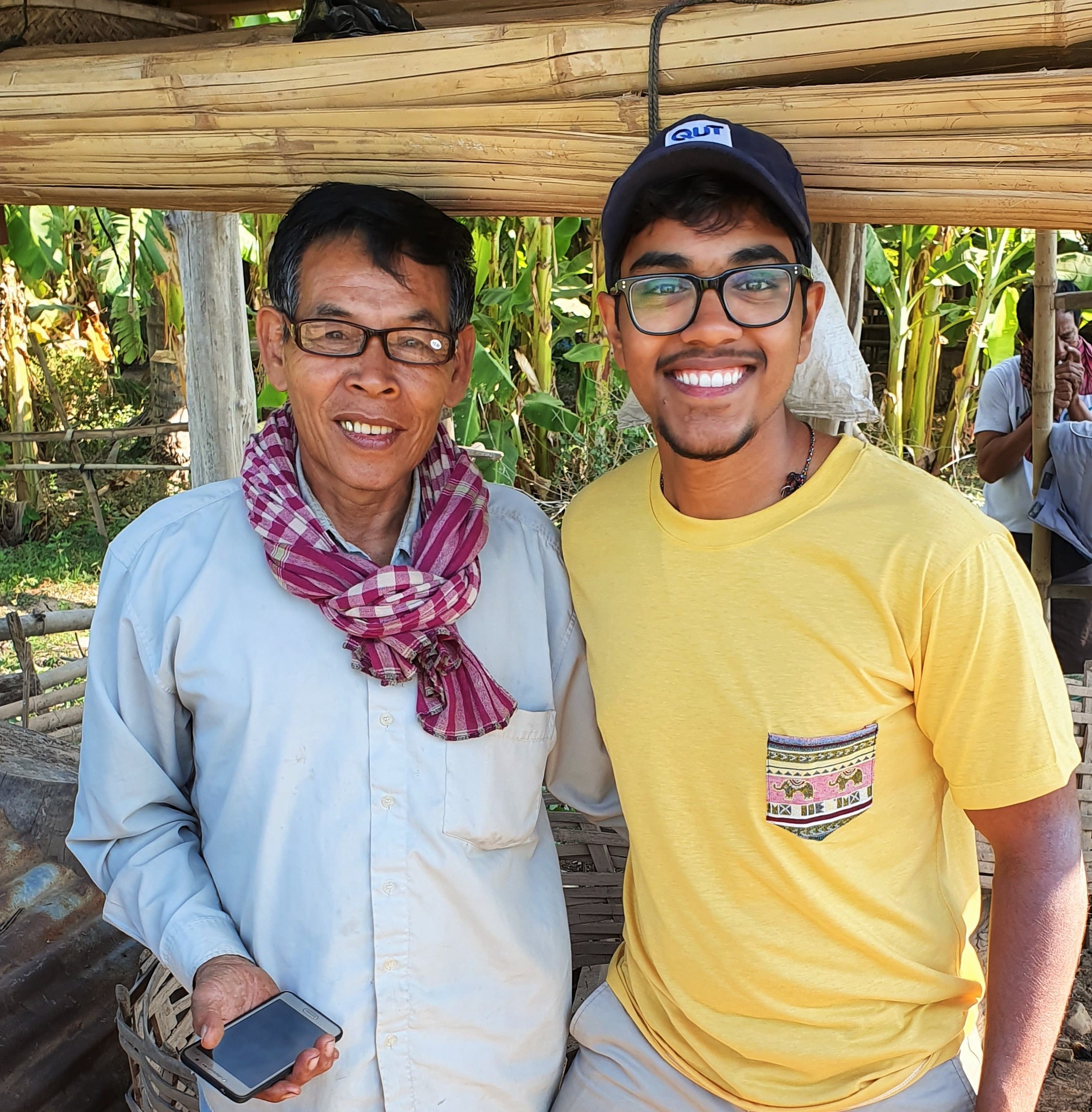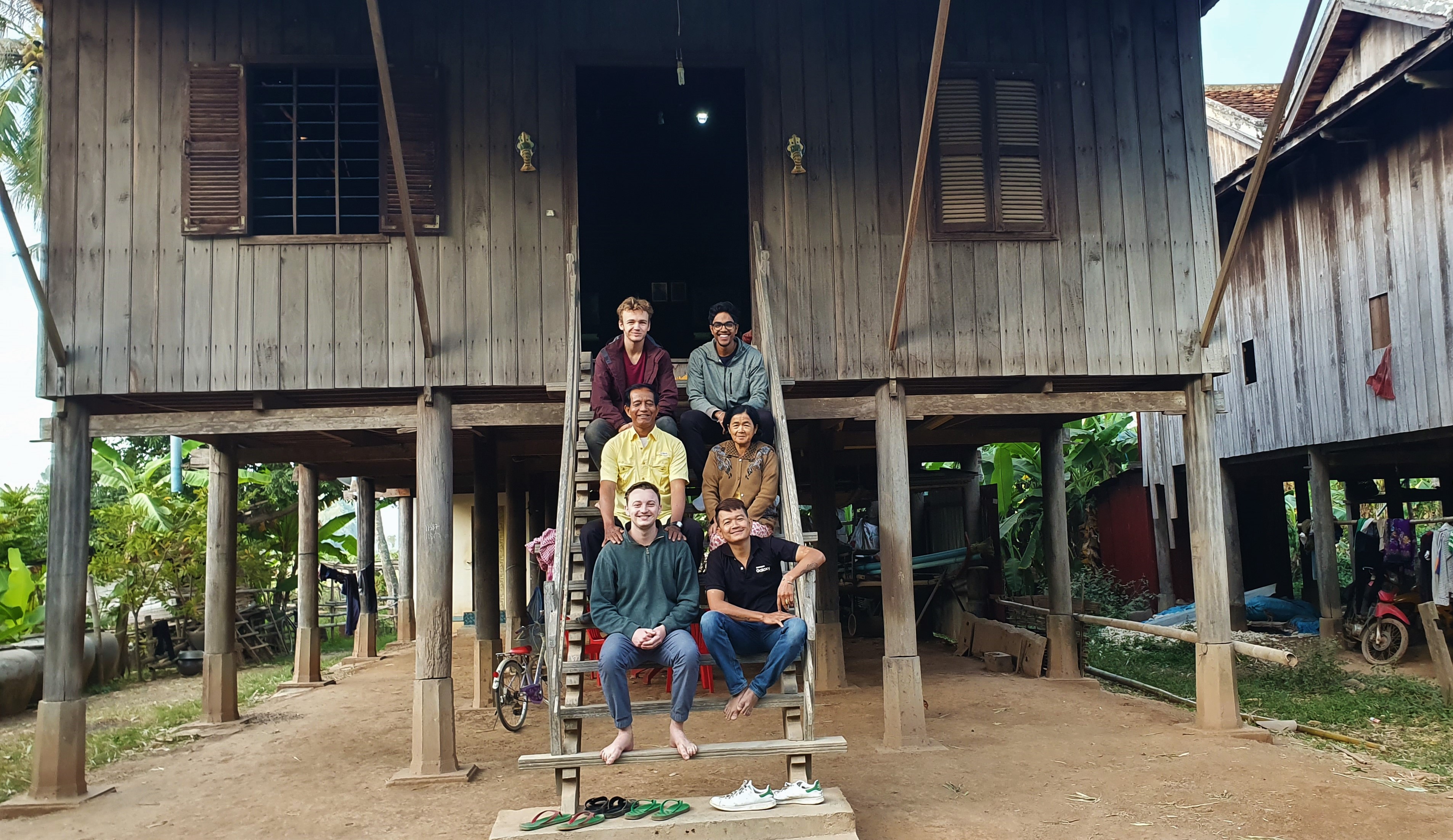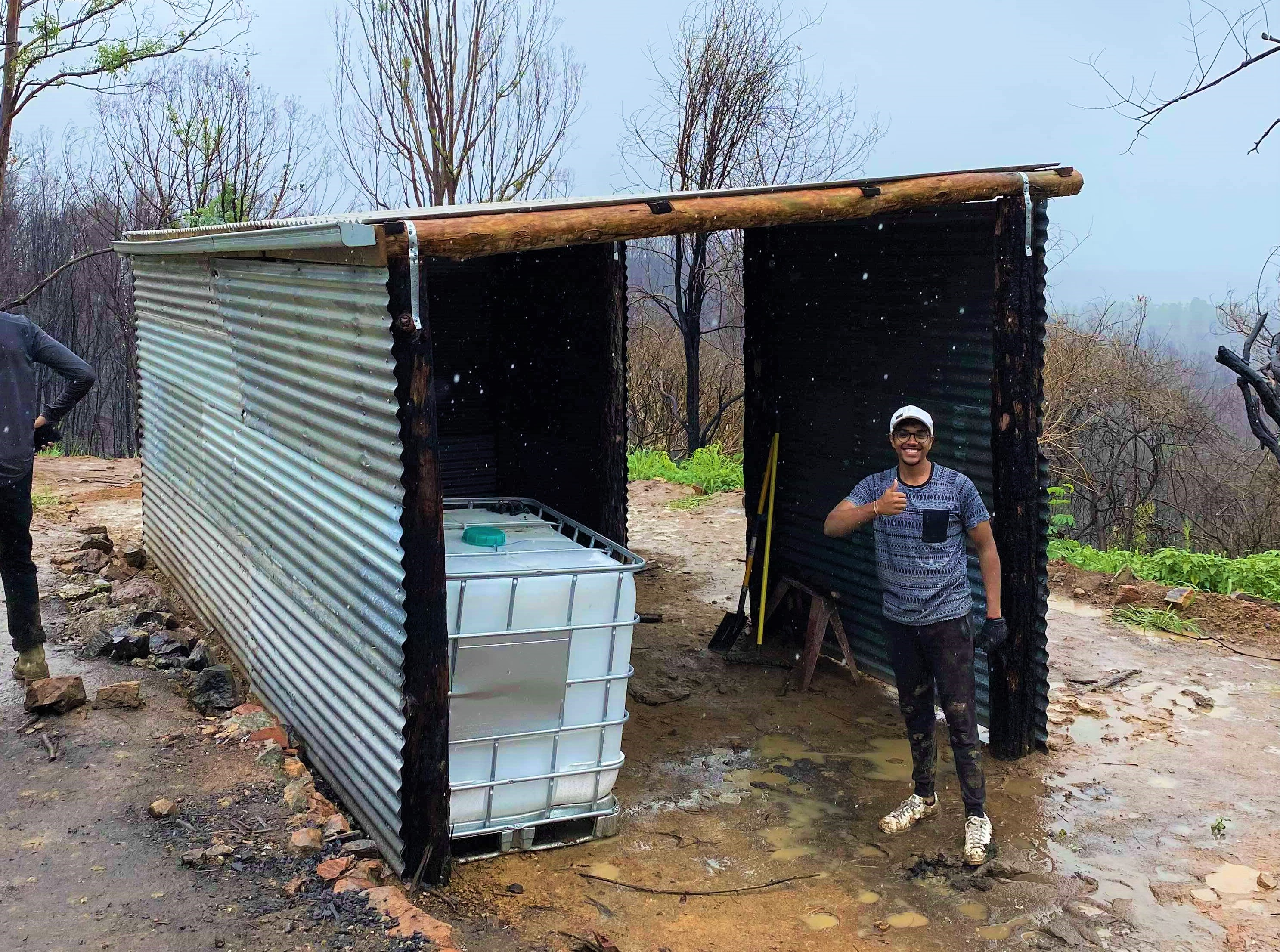Heard of humanitarian engineering? Put simply, it’s using engineering skills to improve the lives of disadvantaged communities around the world. And for QUT student Darshana Munasinghe, it’s daily inspiration for his future career.
Dash is studying a double degree in engineering and business, with majors in civil engineering and finance.
Until March he studied at QUT’s Gardens Point campus in Brisbane but, like his fellow QUT students, he is now studying his course online.
Dash went to Brisbane State High and then completed Year 11 and 12 at the Queensland Academy for Science, Mathematics and Technology.
At school, he knew he wanted a job that involved helping people and set his sights on health.
But, after talking to other students studying engineering and business, he switched to a Bachelor of Business/Bachelor of Engineering (Honours)at QUT.
“Once I realised this was the pathway I wanted to take, the process of gaining entry to QUT was very straightforward because I’d already studied health at another university for a year and my uni GPA (grade point average) was taken into account by QTAC,” he said.
“Studying engineering and business allows me to learn the technical skills of engineering and the skills required to finance projects.
“My main drive is to one day work as a humanitarian engineer to provide solutions for problems we cannot even imagine here in Australia, such as access to clean water, electricity, internet, etc. Alternatively, I would like to work in policy towards sustainability in engineering or social entrepreneurship.”
Dash was born in Canberra and his parents are from Sri Lanka.
“I do believe my heritage and my parents have been a major influence in my career pathway towards humanitarian work,” he said.
“My dad has focused his life on developing Sri Lanka and assisting those in need as he came from one of the disadvantaged communities.”
Dash is now in his third year at QUT and has enjoyed the real-world opportunities that have come his way.

“From day one, all my classes have been deeply embedded with real-world scenarios,” he said.
“QUT has given me the opportunity to go overseas to Cambodia to the Engineers Without Borders Humanitarian Design Summit in December last year.
“It was an absolutely mind opening program set in homestays in a remote village as we collaborated with the villages to use our skills in engineering to design solutions to areas in their lives.

“Once we were back, Australia was going through the bushfire crisis.
"Humanitarian work doesn't have to be overseas. A friend who came to Cambodia and I gathered a few QUT engineering students to drive down to rural NSW to assist with communities that were affected by the fires.
“We worked with an organisation called the Shed of Hope to build shelters on properties that had been burned down. They came with a water tank and sinks, and the organisation provides free beds and furniture to give people in the communities that first push to get their lives back to normal.”

Dash said his business studies were also highly practical, with all assignments based on real world case studies.
“I have done projects on the impact of quinoa on the economies of Peru and Bolivia, and, more locally, a financial analysis of a wind turbine project in Brisbane,” he said.
Dash’s advice for people considering studying at uni included making good use of the extensive information on the QUT website.
“There’s a lot of information on there about careers, courses and the types of majors available and that helped me narrow down what I wanted to study,” he said.
“It’s good to get your family and friends involved because having a strong support network is vital during the application process and transition to university.
“And I think it’s important to know that it’s okay to change your mind sometimes – plans and career goals can change.”






